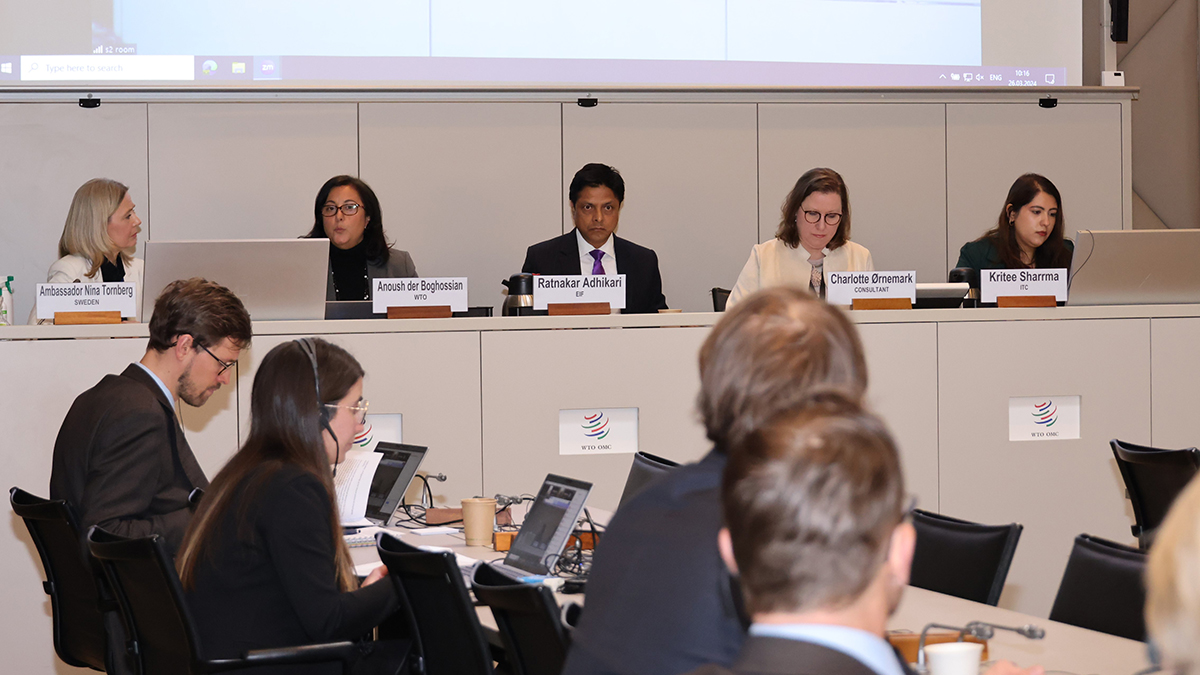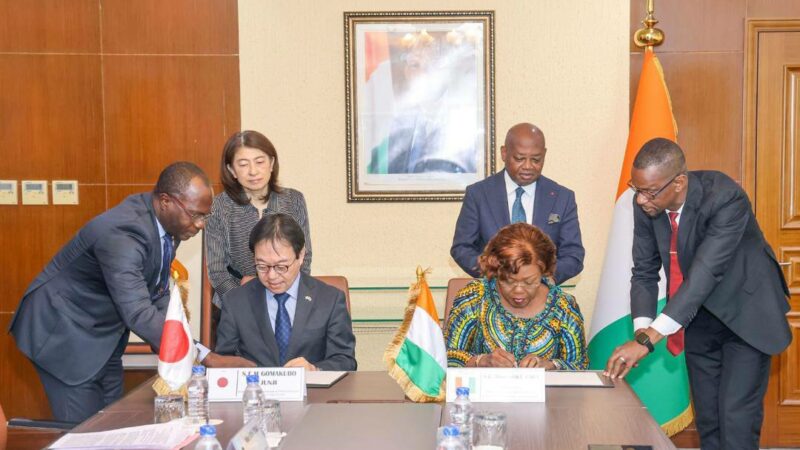WOMEN AND TRADE : WTO and EIF host discussion on trade policy and women’s economic empowerment

An event titled “A joint conversation on women’s economic empowerment”, hosted by the WTO and the Enhanced Integrated Framework (EIF) on 26 March, provided a platform to showcase recent advances and initiatives aimed at addressing gender inequality in trade and fostering women’s empowerment.
Speakers at the event presented recent developments concerning trade and gender. The WTO’s Trade and Gender Office highlighted three member-led outcomes on trade and gender from the 13th WTO Ministerial Conference, marking a significant milestone in advancing gender-responsive policies.
Anoush der Boghossian, the Head of the WTO’s Trade and Gender Office, outlined her recent research findings, published in 2023, on the links between trade and gender and social issues, as well as how trade policies support women’s decent work.
She also highlighted the key features of the Office’s work programme for 2024-25, stressing the expansion of the WTO’s technical assistance to government officials and announcing a forthcoming training course on trade and gender, scheduled for 15-18 April 2024.
The EIF spotlighted outcomes and lessons learned from its “Empower Women, Power Trade” initiative, which aims to transform the economic lives of women in least developed countries (LDCs) through targeted trade-related projects. A comprehensive review of the initiative underscored the importance of gender-responsive policies, support for women in key sectors, and collaboration to advance gender equality in trade.
Several projects were presented during the event by the speakers from the Global Shea Alliance, UN Economic and Social Commission for Asia and the Pacific, and the International Trade Centre. Partnering with those organizations, the EIF implemented initiatives to promote shea production in West Africa, support women entrepreneurs in South Asia to leverage e-commerce, and enhance women’s participation in regional and international markets through initiatives like SheTrades in Zambia. Speakers highlighted successful examples of the impact of gender-responsive policies in empowering women economically and integrating them into global value chains.
In her closing remarks, Ambassador and Permanent Representative of Sweden to the WTO, Nina Tornberg, who moderated the event, emphasized the ongoing nature of the work for gender equality. She highlighted key takeaways from the discussions, focusing on the importance of gender-responsive policies for fostering inclusive economic growth, the necessity for targeted support in sectors predominantly involving women, and the importance of collaboration between international organizations, governments and civil society in advancing gender equality in trade.
The video recording of the event is available here.





